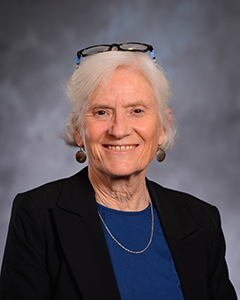Millions of dollars in lodging taxes from Airbnb and other online travel businesses are not collected each year in cities across Oregon, including tourist-dependent communities in Jackson County.
That’s about to change, following the Legislature’s approval of House Bill 4120, which requires the online payment collector to pay transient lodging taxes, used by many cities to promote local tourism.
“Cities need the money, and there needs to be equity between the online platforms and the brick-and-mortar lodging providers in the community,” said state Rep. Pam Marsh, D-Ashland.
The bill, sponsored by Marsh, requires the party that collects the payment for the lodging to file all required government paperwork and to pay the taxes. The bill is sitting on Gov. Kate Brown’s desk awaiting a signature, and Marsh anticipates the governor will support it.
According to an analysis by the Legislative Revenue Office, the state could receive an extra $400,000 annually in lodging taxes and local governments another $2 million.
“We think that might be a little bit of a low-ball estimate,” said Wendy Johnson, intergovernmental relations associate with the Oregon League of Cities.
She said it’s difficult to tell how much lodging tax isn’t collected because previous regulations didn’t address the online model for lodging. In some cases for the online transactions, a third-party vendor collects the payment and then disburses the money to a company and to the person making the space available.
Under the new law, which takes effect this summer, the third-party vendor will be responsible for paying the lodging tax.
Another change initiated by the legislation is making sure online companies collect the payment from the customer but also pay their fair share of the tax. Previously, some companies were paying the tax based only on the share being sent to the party renting out the lodging, rather than for the full price of the rental.
“It wasn’t quite clear that they owed the taxes,” Johnson said. “Now it’s clear.”
The amount of tax paid will depend on the established local lodging tax, which ranges from 6 to 9 percent in the eight cities in Jackson County.
The House bill also closed another loophole by requiring online companies such as Airbnb to be subject to the same auditing requirements as hoteliers.
Johnson said Portland was one of the first communities in the country to have a specific contract with Airbnb that ensures taxes are collected and that the company is subject to auditing rules. House Bill 4120 offers the same regulations for the 91 cities and 16 counties that have local transient lodging taxes.
In 2016, almost $190 million in lodging taxes were collected by local governments and another $21 million by the state.
In Jackson County in 2016, Medford and Ashland collected the lion’s share of lodging taxes, receiving $3.8 million and $2 million respectively. Central Point had the third largest share at $482,000, followed by Jacksonville at $147,000, Rogue River at $72,000 and Shady Cove at $61,000. Numbers for Talent for 2016 were not available, but the city received $6,000 in 2015.
Marsh said the challenge in crafting the legislation came in dealing with the changing business models for the travel industry.
She said some of the models are particularly complex because of third-party vendors that collect and distribute payments to multiple parties.
She said the transient lodging tax is a critical part of many local governments.
In formulating language for the legislation, Marsh said, it was important the state encourages development of other lodging models that benefit the consumer while creating equity with the hotelier industry.
Eli Matthews, senior vice president of Travel Medford, welcomed the new bill.
“This ensures everybody has a level playing field,” he said.
He said the lodging tax issue has been a frequent topic of conversation among people involved in the Oregon tourism industry.
— Reach reporter Damian Mann at 541-776-4476 or [email protected]. Follow him on www.twitter.com/reporterdm.
